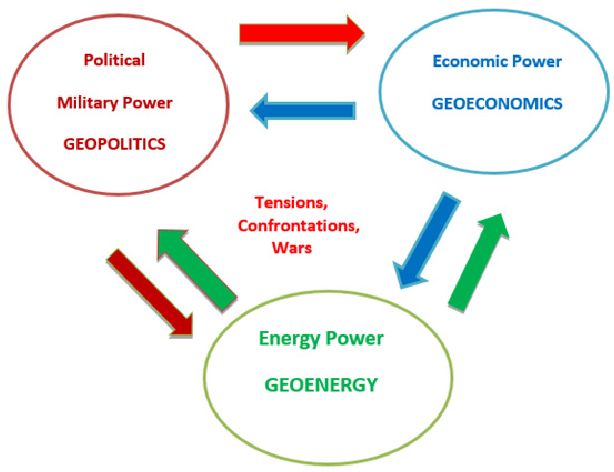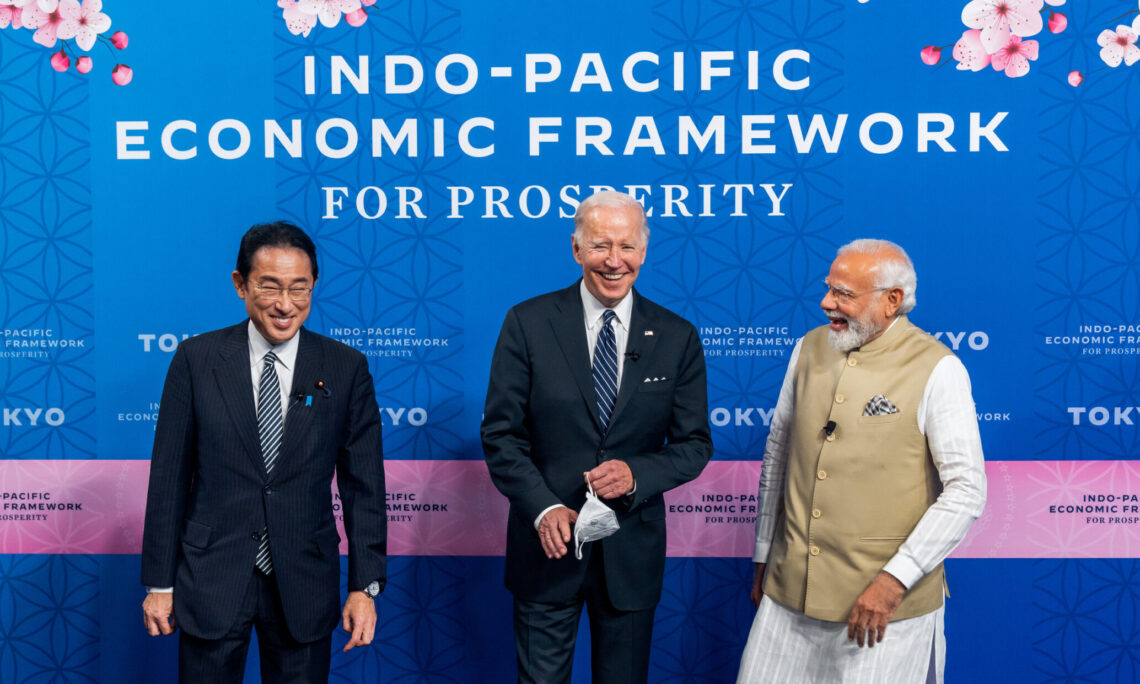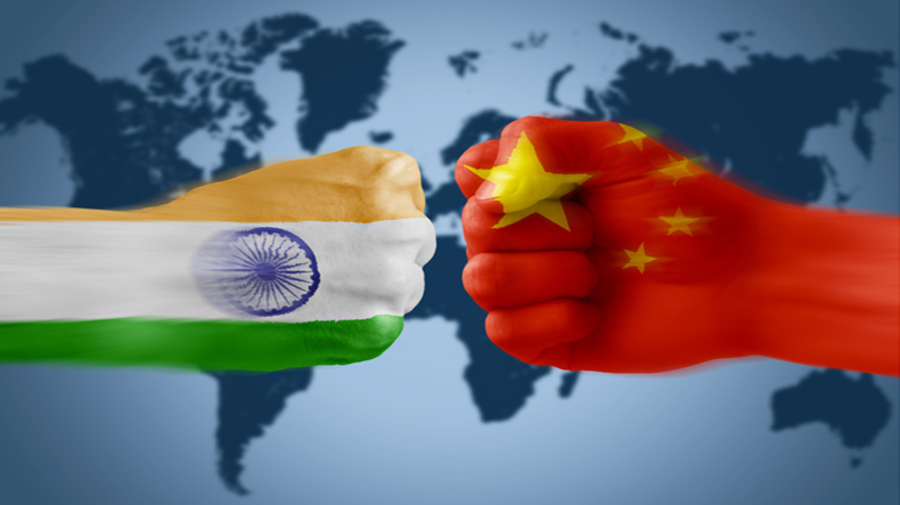Context: India’s approach in Geopolitics
In recent years, New Delhi has acquired a strong desire to participate in geopolitical events in the Indo-Pacific region, and it has done so with great success. Despite the temptations to militarize/secure the Quad (Australia, Japan, India, and the United States), it has emerged as a major pivot of the global Indo-Pacific grand strategic imagination, and has ensured that the Association of Southeast Asian Nations (ASEAN) states appear unconcerned with the ever-increasing balance of power articulations in the Indo-Pacific. However, given New Delhi’s lack of attention to the Indo- Pacific’s Geo-economics dynamics, New Delhi’s Indo-Pacific policy appears to be half-baked and unsustainable in the long run.

Geopolitics and Geo-Economics Entangled
Today’s policymakers in New Delhi do not appear to recognise the inextricable links between geopolitics and geoeconomics. To put it another way, even while contemporary great power behaviour has evolved beyond classical geopolitical imageries, emphasising geoeconomics as the foundation of geopolitics, New Delhi remains trapped in old binaries. India’s choice to invest heavily in the Indo-Pacific and Quad while refusing to join two of the region’s important multilateral trading agreements demonstrates that geoeconomics and geopolitics are envisioned and pursued concurrently in New Delhi, rather than as complementary. The most recent example is India’s rejection to join the Indo-Pacific Economic Framework’s (IPEF) trade pillar while agreeing to join the IPEF’s other three pillars — supply chains, tax and anti-corruption, and renewable energy.
The Indo-Pacific Economic Framework (IPEF)
Biden launched it in Tokyo on May 23, 2022.
The IPEF has four pillars: Trade; supply chains; clean energy, decarbonization, and infrastructure; tax and anti-corruption. • Except for Cambodia, Laos, and Myanmar, other Southeast Asian nations are part of the IPEF.
It’s a good start because, despite being launched on the sidelines of a Quad summit, most Association of Southeast Asian Nations (ASEAN) countries agreed to be a part of it.

CONCERNS FOR INDIA – IPEF
• The United States‘ preference for free and open data flows will constrain India’s ability to manage data for domestic purposes.
• India may be hesitant to align its tax policy with the efforts of US partners to establish a worldwide tax standard in order to combat tax avoidance and evasion.
• India will keep fighting over labour standards and non-tariff barriers.
Surprising Move
India’s decision to stay out of IPEF, a U.S.-sponsored soft trade agreement, comes two years after it dropped out of RCEP discussions, which took effect this year.
India’s decision to skip IPEF is unexpected given New Delhi’s recent desire for trade deals.
New Delhi began rethinking its external trade policies after COVID-19.
New Delhi’s recent decision to stay out of the IPEF demonstrates a clear policy direction: by not joining the IPEF and RCEP and negotiating FTAs with individual states, New Delhi has shown that it prefers bilateral agreements over multilateral, plurilateral, and even soft accords like the IPEF.
A regressive step, China factor
New Delhi’s determination to avoid regional trade deals is regressive for multiple reasons. The exclusion of the world’s fifth-largest economy from regional trading platforms would enhance China’s geo-economic hegemony in Asia.
Second, India would have trouble integrating into regional and global supply networks without key regional multilateral trading agreements.
Third, we must address the fundamental issues affecting India’s investment and business climate. Even corporations that left China owing to the so-called U.S. decoupling from China haven’t arrived in India.
Fourth, if India is serious about its maritime grand strategy, it must convince governments in the area to build economic stakes in India (something China has done brilliantly and regularly) and vice versa.

Missing Indo-Pacific moment
Let’s return to the geoeconomics-geopolitics debate. Long-term impact of Delhi’s choice not to join RCEP
India will miss the Indo-Pacific moment, according to IPEF. India has made clear that Indo-Pacific and Quad are not military alliances. Then what are they? They are geoeconomic mechanisms that allow important members to pursue geopolitical goals. New Delhi may have compromised its strategic objectives in the Indo-Pacific by not joining two crucial trade accords.
What Needs to be Done?
If India wants to increase its geopolitical influence in the area, it needs reconsider its geoeconomic decisions.
India should rethink its choice not to join the RECP and join the CPTPP, from which the U.S. stepped out and China wants to join.
India should urge to join the U.S.-led 11-member Minerals Security Partnership to guarantee mineral supply chains.
If India wants to be part of the Asian century and its economic growth story (China’s share in world commerce is 15% and India’s













